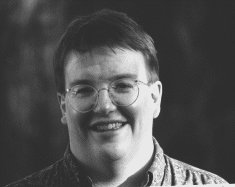I just wanted to say good job on the exams, overall they were sound, but a few notes I want everyone to be aware of:
1) citations: Do not only cite direct quotations. If you took an idea or fact from another author, you MUST cite, otherwise it's plagairism. There were far too many questionable statements, this might have been a take home midterm, but you were still expected to identify your source; no one will ever mark you down for citing too much (unless you are failing to understand the author).
2) quotations: use sparingly. A few will strengthen a paper, but too many weakens your authorial voice, to the point where the reader understands you're just rehasing someone else's arguement, and not necessarily demonstrating an understanding of the material. But by rephrasing, or even better, incorporating the author's arguement into your own, you demonstrate a true grasp of the material.
3) examples: Many papers either went too heavy into theory, or too lightly touched up on it. The best papers demonstrated an ability to encorporate theory with examples. If you say CTs come from distrust of the government, show it. Saying "Distrust of the government can be seen in the many conspiracy theories revolving around 9/11." While this is true, you are only telling the reader this fact, not showing it to them. A stronger way of stating that would be: "The conspiracy theories revolving around 9/11 demonstrate a basic distrust of the government, since people are unwilling to accept either the government reports, or statements from outside and qualified experts. Instead, the amateur investigator turns to their own resources, and anyone who counters his point of view becomes wrapped up in the conspiracy." In this second version, you have shown how distrust of the government created 9/11 conspiracies.
4) Just for my own gratification: MCCARTHY WAS A BLOODY DRUNK WHO DRAGGED UP THE RED SCARE TO PROP UP A FAILING POLITICAL CAREER. Perhaps he believed it, more likely he just enjoyed the attention. Yes, there were communists in America, yes we were at odds with the Soviet Union; this does not mean that McCarthy uncovered some grave scheme to overthrow American democracy. Rather, he was a failing politician who needed some sort of gimmick to attract attention, and more importantly, votes. This is Hofstadter's point. Hofstadter did not believe there was a communist conspiracy, instead he was using McCarthy as an example of a politician who used fears of CTs to gain political power, as he had been marganilized from the politics of the days.





